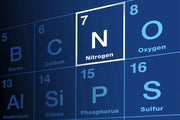
Blog
Our blog is our primary channel for teaching and informing the markets that we serve.

Nitrogen Gas Generation: Understanding Purity vs. Flow
Nitrogen gas generation involves a crucial balance between purity and flow rate, with each parameter significantly impacting the other. High purity levels are essential for certain applications but require careful...
Apr 16, 2024

The Titus Company Is Now Fluid-Aire Dynamics!
Fluid-Aire Dynamics was thrilled to welcome The Titus Company in Morgantown, Pennsylvania to the FAD family in June 2023. The move brought together a leader in compressed air equipment and...
Mar 22, 2024

Nitrogen Generator Compete 2024 Buyers Guide
Get the best nitrogen generator for your facility! If you use nitrogen in your industrial processes, an onsite nitrogen generator can save a lot of money and ensure that you...
Mar 19, 2024

Is a Nitrogen Generator Worth the Investment?
Are you considering switching from a contract nitrogen supply to onsite nitrogen generation? You might be wondering if purchasing a nitrogen generator is worth the investment. Here are the pros...
Mar 18, 2024

2024 ComEd Compressed Air Energy Incentives
Northern Illinois manufacturers can save thousands of dollars in energy bills by improving the efficiency of their compressed air systems. Thanks to compressed air energy incentive programs from ComEd, optimizing...
Mar 15, 2024 by Brad Taylor

How Does a Nitrogen Generator Work?
Nitrogen generators create purified nitrogen gas out of thin air. How do they do it? Let’s take a closer look at the science of nitrogen generation. If you use a...
Mar 11, 2024

Get in Touch Today
We are here to serve your compressed air system needs 24/7/365. Call or click today!
Contact us